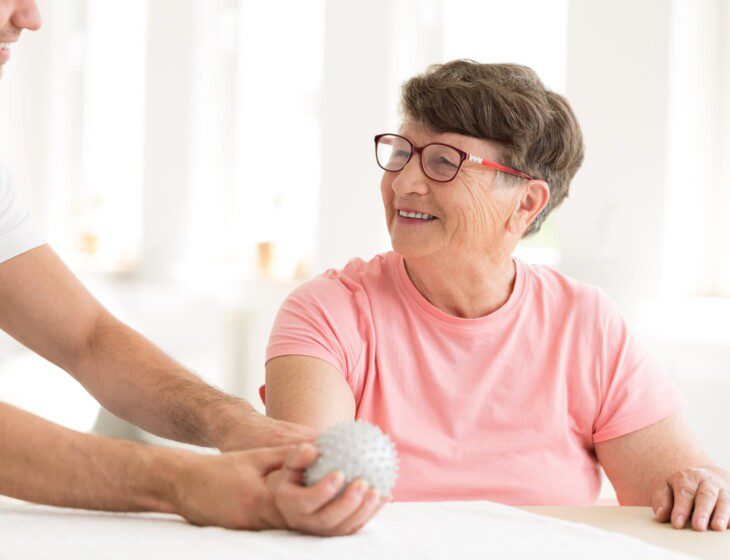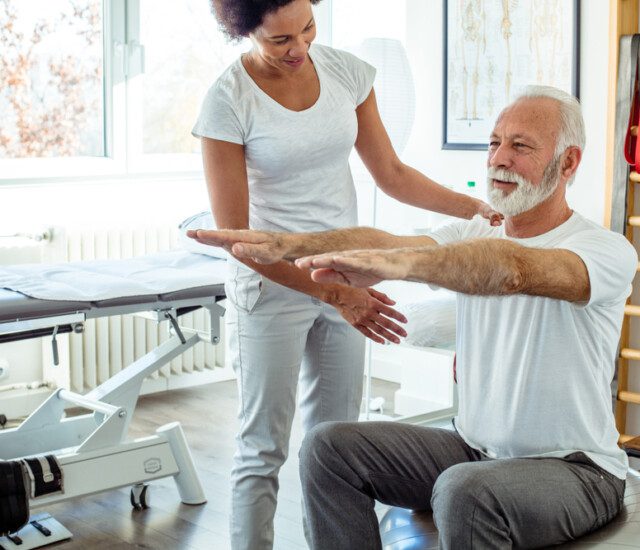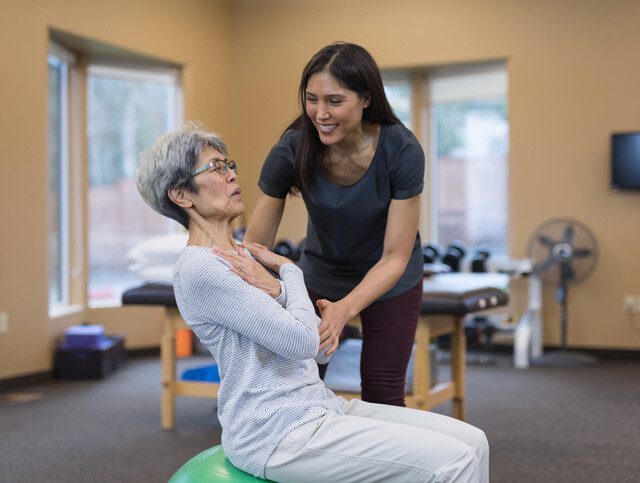Every year, more than 795,000 people in the United States have a stroke. As a senior living community in Prairie Village, Kansas, Claridge Court offers residents a continuum of care options including the rehabilitation and skilled nursing services you might need when recovering from a stroke. Whether or not you are currently a Claridge Court resident, here is what you can expect during stroke recovery with our rehabilitation team.
Signs of Stroke
While a stroke can happen to anyone at any age, the risk of stroke for adults nearly doubles each decade after the age of 55. High blood pressure and high cholesterol both put individuals at higher risk for stroke.
Although women are at an increased risk for stroke, signs and symptoms of stroke are similar between men and women. Signs of a stroke can include the sudden onset of vision trouble, speech difficulties, face drooping or weak arms.
A stroke can be beatable. According to the American Stroke Association, there are more than 7 million stroke survivors living in the United States. There are life-saving medical techniques and specific rehabilitation activities that can get a stroke survivor on the road to recovery.
For the most successful recovery it’s important to act quickly. The sooner a stroke victim is able to receive medical intervention, the less severe the long-term effects are likely to be. Similarly, the sooner a stroke survivor begins rehabilitation, the more effective those therapies will be.
Stroke Recovery
Stroke recovery varies on an individual basis, but it can take one to two years for a full recovery. The most significant gains usually occur in the first three to four months, however, so it’s important to begin therapy early. Depending on personal circumstances, the severity of the stroke and its side effects, recovery options might include in-patient or outpatient rehabilitation or skilled nursing care. Your care team will work with you and your loved ones to determine the rehabilitation option that is best for you.
What’s Involved in Stroke Recovery
Stroke recovery involves a multidisciplinary approach to help an individual regain lost physical and cognitive abilities to increase independence with mobility, self care, and all other daily activities. That multidisciplinary approach often involves working with physical therapists, occupational therapists and speech therapists.
During the first few weeks of recovery, the focus of therapy is on helping regain strength, coordination and range of motion. During this time, practitioners also focus on increasing independence with mobility and self care, starting with smaller movements, like moving from the bed to a chair with assistance or performing bedside grooming tasks. Therapists might also offer instruction and practice with adaptive equipment, which can make day-to-day tasks easier.
As recovery progresses, therapies will also continue to progress towards independence, with greater mobility on uneven surfaces and ease of use with any necessary durable medical equipment, like a wheelchair or cane.
Long-term recovery — following discharge for those in in-patient rehabilitation — incorporates physical and cognitive therapies to increase an individual’s independence in their living environment and address higher-level challenges.
Stroke Rehabilitation at Claridge Court
In-patient and outpatient rehabilitation services at Claridge Court are available to residents and non-residents alike. For our independent living residents, both options eliminate the need to coordinate transportation to appointments while allowing you to remain in the comfort of our community and remain near your spouse and the friendly faces of Claridge Court. The support and encouragement from loved ones plays an invaluable role in stroke recovery. It’s important to remember that even though stroke recovery can be long, significant improvements can be made.
To learn more about Claridge Court and our rehabilitation services, please fill out the form below or call us at 913-383-2085.


